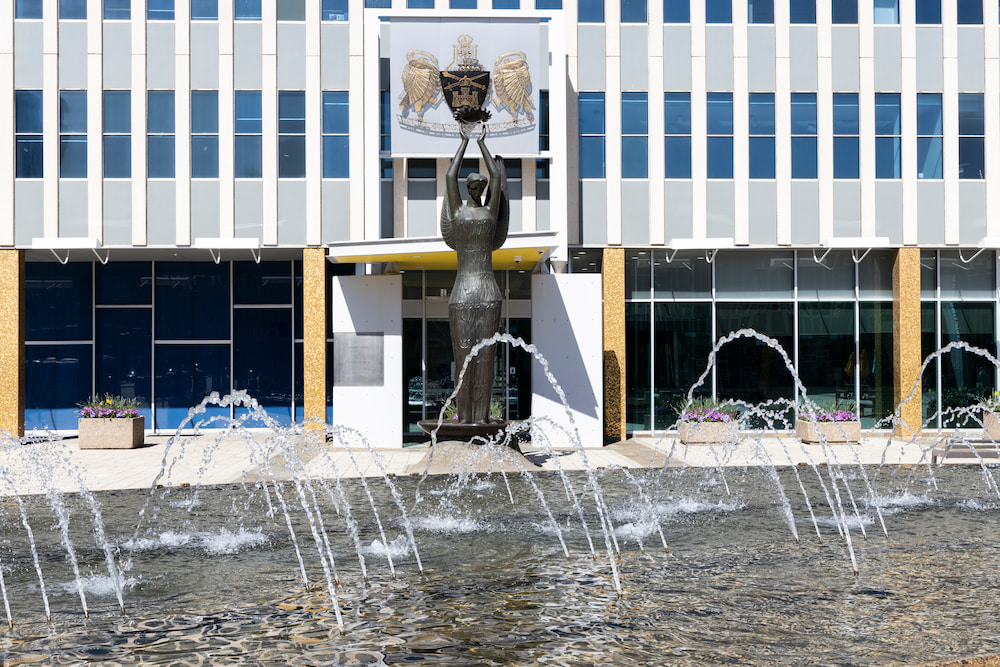Canberra Liberals MLA Jeremy Hanson’s motion to delay the implementation of the controversial decriminalisation of hard drugs until after next year’s election was defeated in the ACT Legislative Assembly this afternoon.
Mr Hanson argued that the ACT Government did not have a mandate for their drug reforms; they had been warned by law authorities and doctors that the reforms would not work; and that Canberra was unprepared for the decriminalisation of drugs.
“It is reckless to push ahead with these laws,” Mr Hanson said.
Health Minister Rachel Stephen-Smith described Mr Hanson’s motion as disappointing hyperbole and extraordinary overblown claims that stigmatised people who use heroin and meth.
- Read: Will drug decriminalisation in the ACT reduce harm? (10 September)
The Drugs of Dependence (Personal Use) Amendment Act, passed last year, is scheduled to come into effect at the end of October. Those caught in possession of small amounts of illicit drugs – including heroin and ice – might pay a Simple Drug Offence Notice fine of $100 or attend an assessment and harm reduction session, rather than face a two-year prison sentence. The government says treating drug use as a health issue, rather a criminal offence, will make it easier for drug users to access health support.
ACT Labor and the ACT Greens voted last year to pass Labor backbencher Michael Pettersson’s motion. Mr Pettersson noted that the Liberal-majority committee he chaired in 2020 agreed that substance abuse was a health issue, and that youth suffering from such disorders should be treated in the health system, allowing for diversion from the criminal justice system; and to investigate the implementation of a simple drug offence notice, similar to simple cannabis offence notices for minors, extending it to some other drugs.
Mr Hanson claimed the government disingenuously hid their plans to decriminalise meth from the people of the ACT in the lead-up to the election, and then introduced the reform as a private member’s bill to avoid scrutiny. The government, he said, had conflated the debate about simple offence notices with their deliberate intent to go quietly on the issue. (ACT Labor states this was mentioned on their election platform.)
Mr Hanson stated that ACT Policing and the Australian Federal Police had predicted an increase in drug use and drug trafficking, with police unable to intervene; Chief Police Officer Neil Gaughan has warned about organised crime and bikie gangs coming from Sydney. The Australian Border Force had cautioned the ACT against going alone, fearing it could become a hard drug centre; reducing penalties for drugs in one jurisdiction and not others could lead to transnational and interstate crime. Frontline health providers like GPs have said they cannot cope with current demand, that the reforms would lead to more drug users, and that they had no chance of getting drug users into programs.
Mr Hanson said he had received emails from people who had been addicted to drugs like heroin, and were frightened about the consequences – making it more permissible meant more drugs available, and more users.
“This is a community that is not ready for this radical drug reform,” Mr Hanson said.
“Who are the winners out of this? You’re going to have more people hooked on drugs; you’re going to have more organised crime; you’re going to have more criminals coming into Canberra.”
Mr Hanson said the Canberra Liberals support a health approach to dealing with drug addiction, and want to see better provision of rehabilitation services – but rehabilitation facilities are manifestly inadequate, because there are not enough of them and they are not properly staffed, he argued.
Canberra Liberals MLA Elizabeth Kikkert quoted a 2023 budget submission from the Alcohol Tobacco and Other Drug Association ACT, which stated that government support fell well short of the organisation’s conservative recommendations; the sector was at capacity; current waiting times for some programs are long, and service providers are at times only able to provide low intensity options to clients assessed as needing high intensity treatment.
Up to 4,750 more people require treatment in Canberra than are currently being treated through existing services with an investment gap of $24 million per annum.
The Watson Health Precinct, which the government sees as part of the solution, was very much a work in progress, Ms Kikkert noted. Its residential drug and alcohol treatment facility for Aboriginal and Torres Strait Islander people is not due to be completed until December 2024 (assuming it is completed on time).
Rachel Stephen-Smith said the law reform followed a robust debate and detailed inquiry over two years. It was, she said, a pragmatic harm-reduction approach that sat alongside national policy. Despite claims of increased drug use, she maintained there was no evidence it would affect supply or demand.
Ms Stephen-Smith stated the Assembly agreed to decriminalise possession of heroin and meth – one of the most debated points of the bill – because users were most likely to be dependent, marginalised, and least likely to be diverted away from the criminal justice system. It would reduce fear and stigma, making it easier for people to get on with their lives.
The ACT Government would not legalise drugs, and did not condone them, Ms Stephen-Smith said. Criminal penalties remained for dealing and trafficking drugs, as well as drug driving. The police will confiscate drugs.
Have an opinion?
Comment in the comments section below or email [email protected] with ‘To the editor’ in the subject field; include your full name, phone number, street address (NFP) and suburb. Keep letters to 250 words maximum. Note, letters may be shortened if space restrictions dictate.



